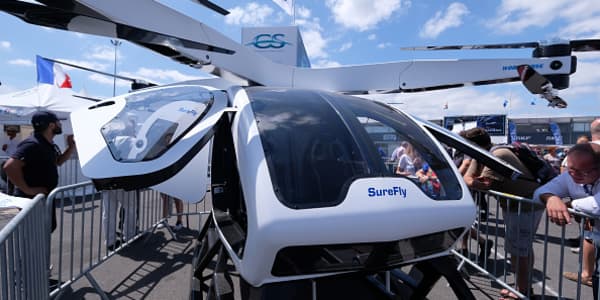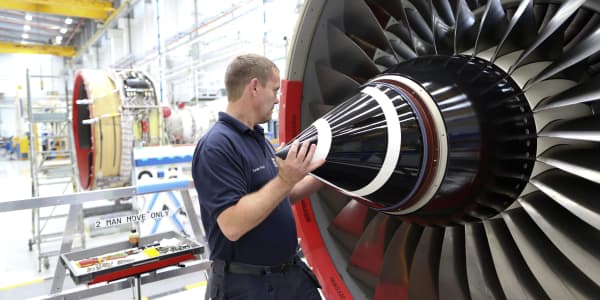The race between Airbus and Boeing for orders at the Paris Air Show may be of less importance as both plane makers focus on how to get through their massive backlog of orders.
Since 2009 both have had a "book-to- bill ratio" sitting above one and Damien Lasou, senior vice president aerospace and defense at Capgemini Consulting, said that couldn't continue.
"If you sell more than you deliver then there is a promise that that is not being kept. They [both] have had to increase the number of deliveries significantly," he said by phone Monday.
Until the end of May this year Airbus had only received 73 orders while Boeing had notched up 205 requests for a new plane. By comparison, over the course of 2014 Airbus received 1456 orders while Boeing took 1432.
Boeing's website claims an order backlog of 5744, while at a press conference in January Airbus claimed a backlog of 6874 planes.
Lasou said global demand for large commercial planes is set to remain robust and that he expected both firms to now focus on speedier delivery.
Indeed Airbus has raised its forecast for deliveries by 6 percent to 34,899 aircraft worth $5.3 trillion over the next 20 years.
Despite arguing that the order battle may not carry its usual prominence in Paris, Lasou said he felt Boeing was currently the better placed plane maker.
"This year Boeing has a tactical advantage because Boeing is releasing a new plane, the 737 Max 10X. There might be orders for that," he added.
Lasou also noted that while Airbus has a huge backlog of orders, it is struggling to manage delivery stocks in the short term, unless someone orders the A380.
Services the next frontier
Airlines can order planes and choose what engines they prefer to fix to them. Historically that has meant juicy service contracts went to suppliers such as Rolls-Royce, while the plane assemblers missed out.
Recently, both Boeing and Airbus have bought firms that sell high value parts which should allow them to increase profit margins on service contracts.
Damien Lasou said Boeing's global service business is targeting annual revenue of $50 billion within the next 5 years.
He said being a leader in the technology of predictive maintenance will be key to hitting that target.
"If you look at an Airbus A350 or a 787 Dreamliner, they have computers that record more than 10,000 parameters [of data]. 10 years ago it was just 20 parameters.
"This big data, if used properly, could help a manufacturer predict when a part will fail," he said.
Lasou added that one area under big development is how best to transfer all the information being recorded in the air back to plane makers and airlines on the ground.





